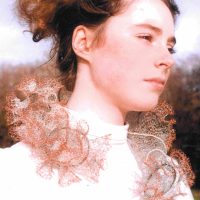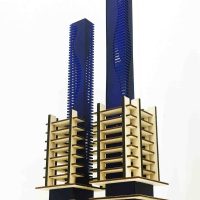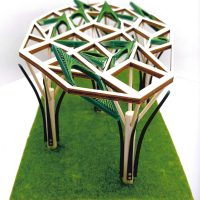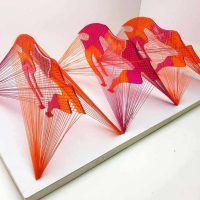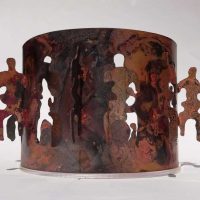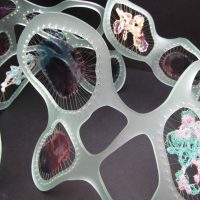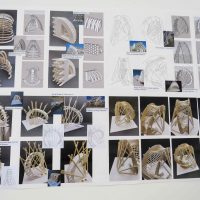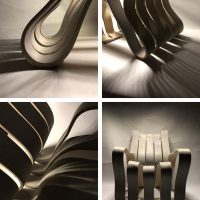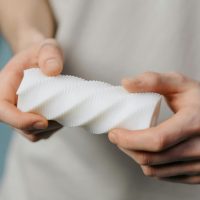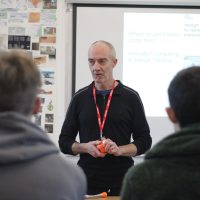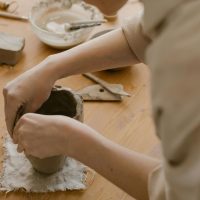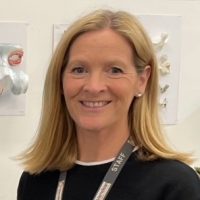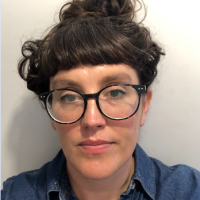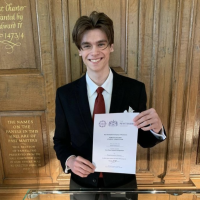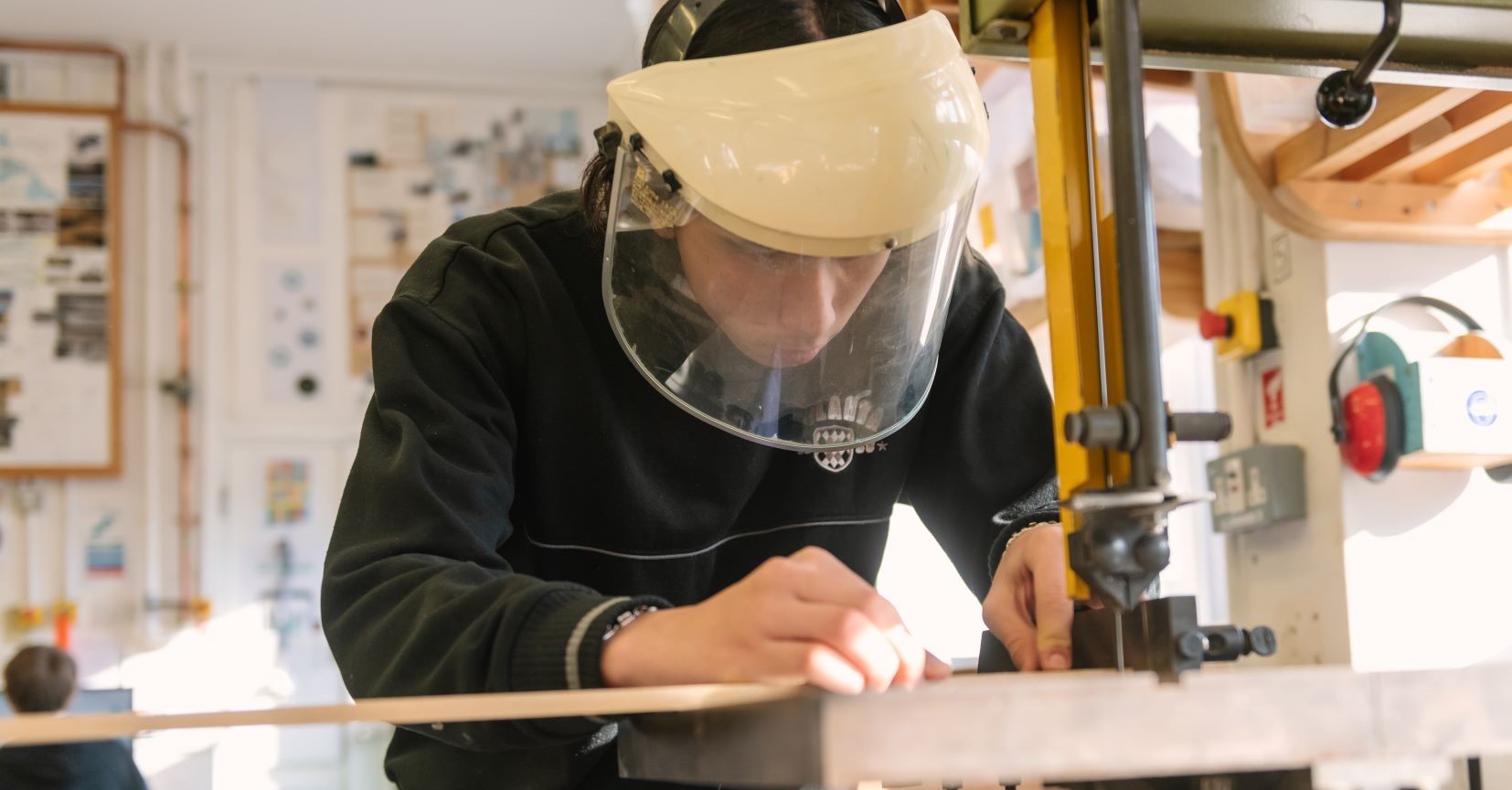
3D Design
This course encourages you to view the world with an inquisitive perspective, transforming your observations into unique outcomes through sketching, model making, material experimentation, and three-dimensional creations.
In your first year, you’ll work on both product and architectural design projects, building a strong foundation before specialising in your second year. You’ll also complete a focused written study (1,000–3,000 words) early in your coursework unit, deepening your understanding of design concepts. Throughout the course, you’ll draw inspiration from the work of established designers and architects, refining your ideas and approaches.
This course emphasises creativity within the design process, encouraging students to explore diverse methods of capturing their ideas, from observational drawing to computer-aided design. The focus is on developing refined concepts through hands-on material experimentation and model making. Guided by Varndean’s expert tutors, who are all practising artists and designers, you’ll have the opportunity to create innovative and refined outcomes.
Shape your ideas, explore new possibilities, and bring your designs to life through this dynamic course!
An independent ALPS report places Varndean College 3D Design A Level course top in the UK when comparing our student grades against all other centres offering the same qualification.
Year 1
- Architectural Brief: Develop designs for architectural structures in response to a brief. This could be: bridges, skyscrapers, treehouses, temporary pavilions
- Product Design Brief: Explore creative briefs for products such as lighting or furniture
- Model Making: Gain hands-on experience working with a variety of materials to bring your ideas to life.
- Material and Process Experiments: Experiment with techniques and machinery in the workshop to understand materials and processes in depth.
- Critical Research: Analyze and draw inspiration from the work of leading designers to inform your own creations.
- Recording Skills: Develop a diverse range of approaches to documenting and presenting your ideas.
Year 2
- Deepening Expertise: Build on your skills, knowledge, and understanding, taking your work to a more advanced level.
- Critical and Contextual Study: Complete a written study that explores key themes and ideas in depth.
- Personalised Project: Undertake an individually negotiated product or architecture project tailored to your interests.
- Ambitious Practical Outcomes: Create bold, refined final pieces that showcase your creativity and technical ability.
- Practical Exam: A 15-hour practical exam following from a period of development
Bonnie Irvine, ex Hove Park School
Course Essentials
Courses Available
A Level
PLUS
OR
Merit or above in BTEC Level 2
OR
If GCSE Art or Design Technology have not been taken, suitably qualified students with a good portfolio of work will be considered.
How The Course is Assessed
60% coursework, 40% exam
Career Pathways
Every year a large percentage of our students go on to successfully study product design, interior design, set design for theatre, design engineering and architecture at top universities including Bath, Brunel, Cambridge, Imperial College London, Loughborough, St Martin’s and UCL.
Transferable Skills
Creative and aesthetic, technical, organisational and interpersonal, analytical and communication, and organisational and teamwork skills.
Other Information
Regular visits are made to design museums and exhibitions in London and the South East.
Enquiries To
Sarah Lampard Sawyer: sls@varndean.ac.uk
Pippa Forster: pdf@varndean.ac.uk
Enrichments & Trips
CAD & 3D Printing Workshops
The CAD & 3D Printing workshops give students the opportunity to learn computer skills whatever level they are at. They can join with no previous experience and will be taught CAD processes step by step. Students can sign up and come with questions on how to refine their existing sketchup files, learn how to get them 3D printed or even just to have a space to practice themselves.
Art Enrichment
Art Enrichment encourages learners to expand their critical thinking and industry knowledge and to become clearer about their progression plans by being introduced to a range of artist practitioners. Participants will be inspired by meeting a range of professionals and hearing them talk about their life, work and ideas development. Regular visitors include Brighton artists; Murray Ballard, Photographer; Sarah Jones, Illustrator; Jon Mills, Sculptor and Andrew Gifford, Painter. These talks also include some local university and college presentations.
Ceramics Enrichment
Ceramics Enrichment offers students the opportunity to explore the art of working with clay. Students learn foundational hand-building techniques such as pinching, slab building, and coiling, as well as ways to create texture and add colour to their pieces. Through practice, students will refine their skills, gaining confidence in a variety of hand-building methods while understanding the essentials of working safely and effectively with clay.
Staff Profiles
Pippa Forster
Pippa Forster is joint Programme Leader for 3D Design and has been teaching at Varndean since 2016 . She has a BA in Wood, Metals, Plastics and Ceramics from the University of Brighton. Pippa continues to practice as a ceramicist and also teaches Pottery courses for adults.
Seb Flanagan
Seb Flanagan is the 3D Design Technician/ Instructor. He has a BA in 3D Design and craft and has experience working alongside blacksmiths and metal workers. Within the workshop he specialises in laser cutting, 3D printing and metal work. He also runs weekly CAD sessions to help the students improve their skills on SketchUp and CorelDraw.
Alumni Success
Jack Pattison
Jack Pattison studied 3D Design at Varndean College between 2020 and 2022. After leaving the course Jack went on to study Product and Furniture Design at the University of Plymouth.
Jack won the Pewter Live 2024 Competition with a design for a versatile pewter pen. He was awarded this prize for innovation in using pewter to write in the same way as graphite and his design was exhibited at the V&A in July 2024.
Creative Arts Showcase 2024
Varndean College’s annual Creative Arts Showcase is a dynamic and vibrant celebration of the outstanding creativity and diverse talents of the year’s graduating students. It features live music, dance and drama performances, interactive gaming and film screenings, alongside exhibitions of 3D design, textiles, graphic design, art and photography.
International Trips
Visual Arts love to go on international trips, most recently we’ve been to Paris, Madrid and Berlin. Our artists, designers and photographers return from visits abroad with well-used sketchbooks, hundreds of photographs and many new and creative ideas to develop in their projects back at college.

